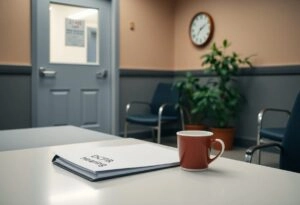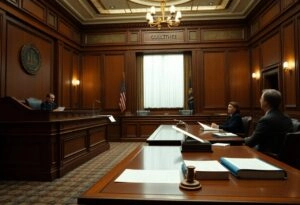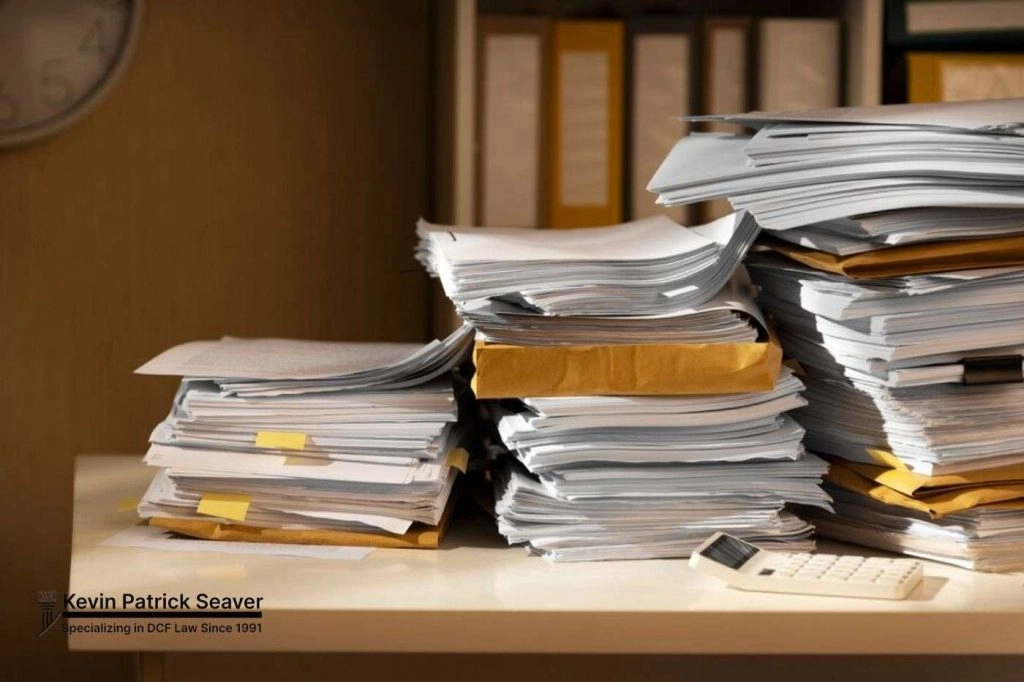How Can a MA DCF 51A Report Affect Custodial Parents in Court?
When Liz, a loving mother in Massachusetts, found out that a MA DCF 51A Report had been filed against her with the Department of Children and Families (DCF), her world turned upside down. She was accused of neglect, even though she had always put her child’s needs first. DCF was now questioning her ability to care for her child, putting her custodial rights at risk.
Liz’s story isn’t unique. Many parents find themselves suddenly thrust into DCF system due to a 51A report. These reported child abuse can come from teachers, doctors, or even anonymous sources, and they often lead to stressful investigations and court battles.
If you are a custodial parent facing a DCF investigation, it’s crucial to understand how a 51A report can affect your custody case. This guide will help you navigate the process and protect your parental rights. Keep reading to learn more about what to expect and how to prepare.
What is a MA DCF 51A Report?
A 51A report is an essential tool used by DCF in Massachusetts to protect children from abuse and neglect. When a person suspects a child is being harmed, they can file this report. The process is initiated to determine if the child is in danger and needs immediate protection.
Who Can File a 51A Report?
- Mandated Reporters: These are professionals who, by law, must report any suspicion of child abuse or neglect. This group includes teachers, doctors, nurses, social workers, and law enforcement officers.
- Non-Mandated Reporters: Any concerned individual, such as a neighbor, relative, or friend, can also file a report if they suspect a child is being abused.
- Anonymous Reporters: Individuals can file reports without revealing their identity, encouraging more people to report suspected abuse without fear of retaliation.
What Does the Process of Filing a 51A Report Entail?
When a 51A report is filed, it is often followed by a series of steps to ensure the child’s safety:
- Initial Contact: The person files a written report to DCF, usually electronically or over the phone. Mandated reporters must also submit a written report within 48 hours.
- Screening: DCF screens the report of child neglect to decide if it meets the criteria for suspected abuse or neglect. They gather preliminary information about the child and family. An MA DCF 51A Report that passes screening often leads to a home visit and interviews with family members, school officials, and medical professionals.
- Investigation: If the report is screened in, a formal investigation begins. DCF staff may visit the home, interview the child and parents, and gather information from other sources like schools and medical records.
How Are DCF Investigations Conducted, and What Are Their Implications?
If a report is screened in, DCF will start a formal investigation. This step is crucial and can impact custody decisions. DCF’s goal is to determine whether the child is safe.
How Does DCF Conduct an Investigation?
When DCF investigates an MA DCF 51A Report, they are expected to corroborate or disprove the allegations with consistent and credible evidence. This evidence must establish that a reasonable person would believe the neglect/abuse took place. To do this, they will:
- Interview the Child: Talking to the child in a safe and comfortable setting to understand their perspective.
- Interview Parents and Caregivers: Discussing with parents or caregivers to gather their input and side of the story.
- Contact Collateral Sources: Reaching out to people who interact with the child, such as teachers, doctors, and neighbors.
- Review Medical Records: Checking the child’s medical history for signs of abuse or neglect.
- Inspect the Home: Visiting the child’s living environment to ensure it is safe and suitable.
DCF investigators begin their work as soon as an MA DCF 51A Report is screened in for suspected abuse or neglect. For example, in a recent case, DCF received a 51A report about a child with frequent injuries.
Unexplained physical injuries. During the investigation, DCF interviewed the child at school, spoke with the parents, and contacted the child’s pediatrician. The medical records revealed a history of untreated injuries, leading DCF to believe that a child is abused.
What are the Possible Outcomes of a DCF Investigation?
There are three possible outcomes of a DCF investigation:
- Unsupported: No proof of child abuse or child neglect is found. The case is closed, and no further action is taken.
- Substantiated Concern: There is some evidence of neglect or potential risk of a child, but no immediate danger. The family may be offered services to address the concerns.
- Supported: There is clear evidence of child neglect or abuse, and the child is at risk. DCF will intervene, which may include removing the child from the home.
How Can a 51A Report Impact Custodial Parents in Court?
A 51A report can significantly alter how a judge views your custody case. It can highlight concerns about your child’s safety and well-being. This can result in changes to your custody arrangements.
What Influence Do DCF Reports Have on Custody Decisions?
Judges take DCF reports seriously when making custody decisions. These reports can be pivotal in determining whether a parent retains child custody.
- Supported Reports: A supported report will be issued if DCF finds clear evidence of alleged abuse or neglect. This can lead to a parent losing custody, as the judge may see the parent as a risk to the child’s safety.
- Substantiated Concerns: Even if the report is not fully supported, but there are substantiated concerns, it can still negatively impact your case. The judge might impose certain conditions or require supervised visitation to ensure the child’s safety.
What Are the Legal Rights and Support Available for Custodial Parents?
You have rights when dealing with DCF. Knowing these rights can help you protect your family. Support is available to guide you through this process.
What Are Your Rights?
When DCF gets involved especially due to an MA DCF 51A Report, it is crucial to understand your legal rights, it is crucial to understand your legal rights. Knowing what you are entitled to can help you navigate the process more effectively.
- Right to Information: You have the right to know what DCF is doing and why. This includes understanding the nature of the allegations and the steps DCF is taking to investigate.
- Access to Reports: You can request to see the reports DCF writes about you and your family. This transparency helps you understand the evidence being used in your case.
- Contesting Findings: If you disagree with DCF’s findings, you have the right to contest them. This can involve requesting a Fair Hearing where you can present your side of the story.
Why is Seeking Legal Assistance Crucial in DCF Cases?
Having a DCF lawyer by your side can make a significant difference when dealing with DCF cases. Legal representation provides crucial support and guidance throughout the process.
- Legal Guidance: A lawyer can help you understand your rights and DCF procedures. They can explain complex legal terms in simple language, making the process less intimidating.
- Evidence Gathering: An attorney can assist you in collecting and presenting evidence to support your case. This can include medical records, witness statements, and other documentation.
- Court Representation: If your case goes to court, having a lawyer represent you can be invaluable. They can advocate, ensuring your voice is heard, and your rights are protected.
Key Takeaways
Navigating an MA DCF 51A Report can be daunting for custodial parents, but understanding the process and your rights is crucial. This article has covered the significance of the 51A report, the steps involved in DCF investigations, and their impact on custody decisions. By knowing what to expect and preparing accordingly, you can better protect your family and ensure a fair evaluation. Seeking legal support can significantly affect how your case is handled and its ultimate outcome.
Staying informed about your rights and the latest developments in child protective services will empower you to advocate effectively for your family. Engaging with professionals with expertise in DCF cases can provide the support and guidance needed during these challenging times. If you have any questions or need further assistance, don’t hesitate to contact a trusted legal advisor. Your feedback and experiences are valuable, so feel free to share them in the comments or contact us directly for more personalized advice.
Don’t Let a 51A Report Affect Your Custody Case – Call Us Today
The implications of a MA DCF 51A Report can be overwhelming and affect your custody arrangements significantly. For any custodial parent dealing with an MA DCF 51A Report, knowing how the process works is your first line of defense. The Law Office of Kevin Seaver specializes in DCF investigations, assessments, and Fair Hearings, providing the expertise you need to navigate these challenging situations. If you are facing a DCF evaluation or court case, don’t hesitate to seek professional legal assistance. Book a consultation or call us today at (617) 263-2633 to ensure your rights are protected.
You find yourself in this situation, it’s advisable to seek legal representation from a qualified attorney, like those at the Law Office of Kevin Seaver, who can advocate for your rights and guide you through the complex process of a DCF investigation.
Remember that the ultimate goal of DCF is to ensure the safety and well-being of children while supporting families in crisis.
Please note that this article does not create an Attorney-Client relationship between our law firm and the reader and is provided for informational purposes only. Information in this article does not apply to all readers.
Readers should not rely on this information as legal advice and should seek specific counsel from the attorney based on personal circumstances. Thank you.
Kevin Patrick Seaver is a Massachusetts DCF Defense Lawyer who represents parents against false child abuse allegations.







